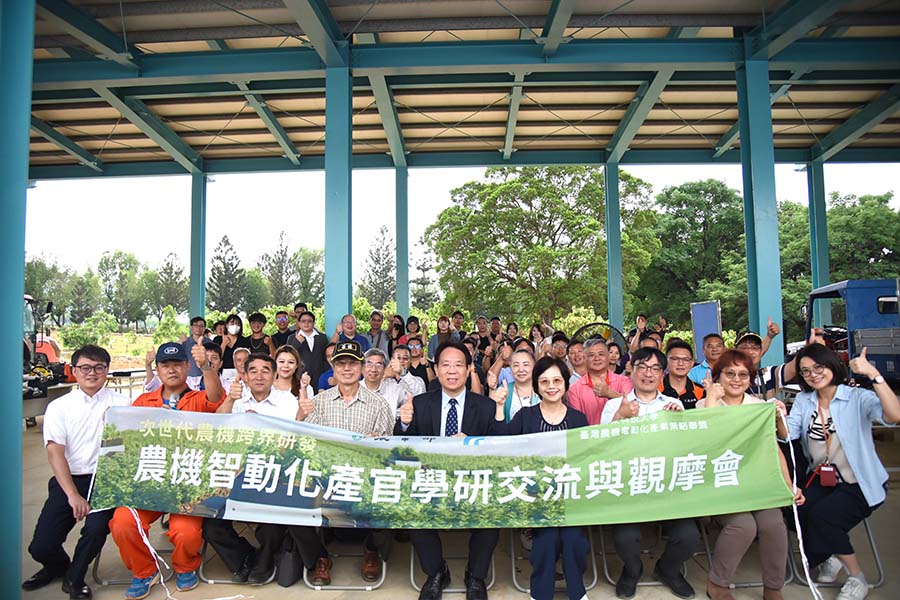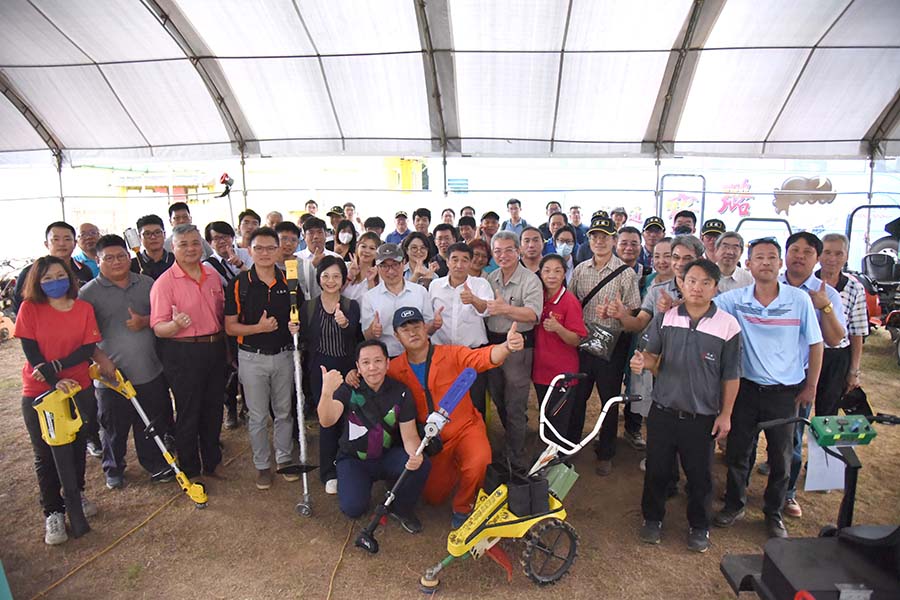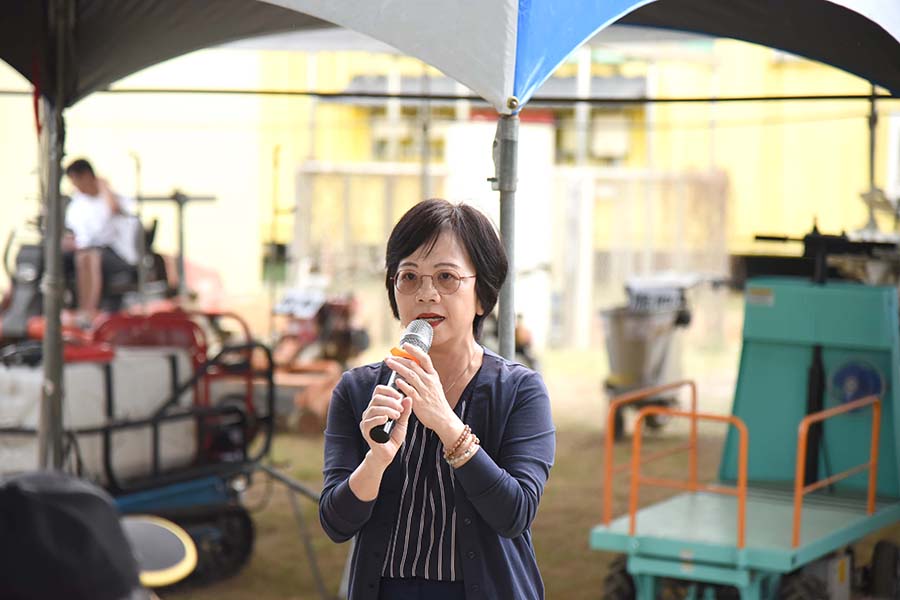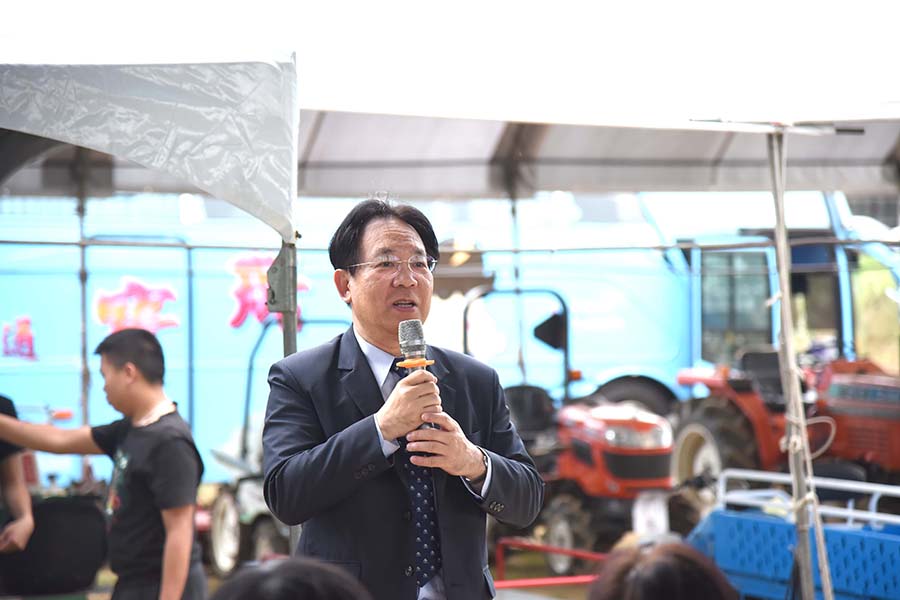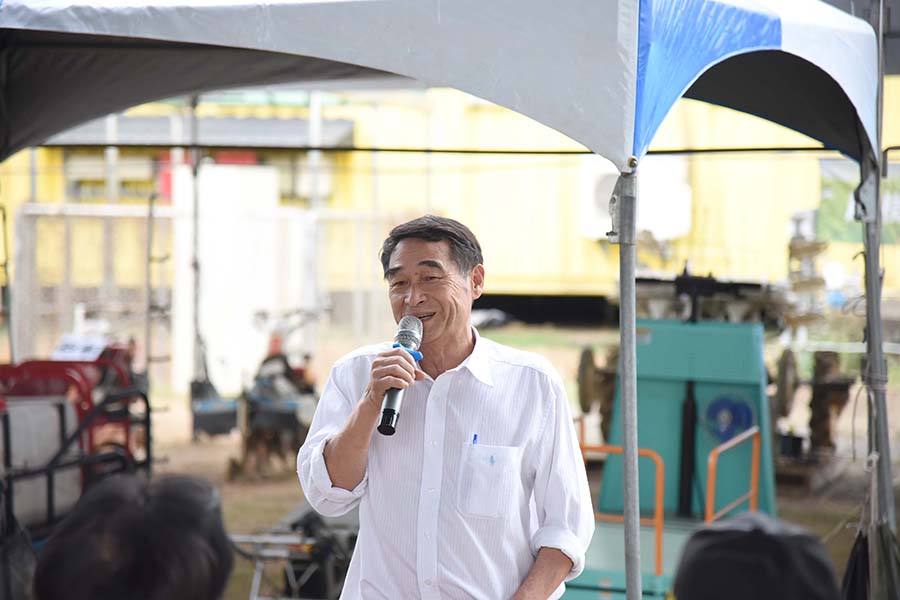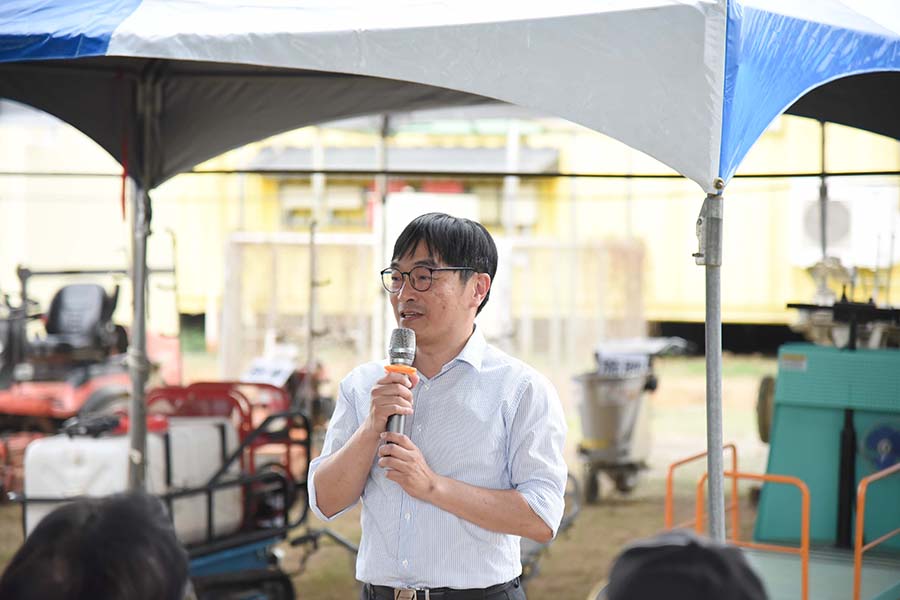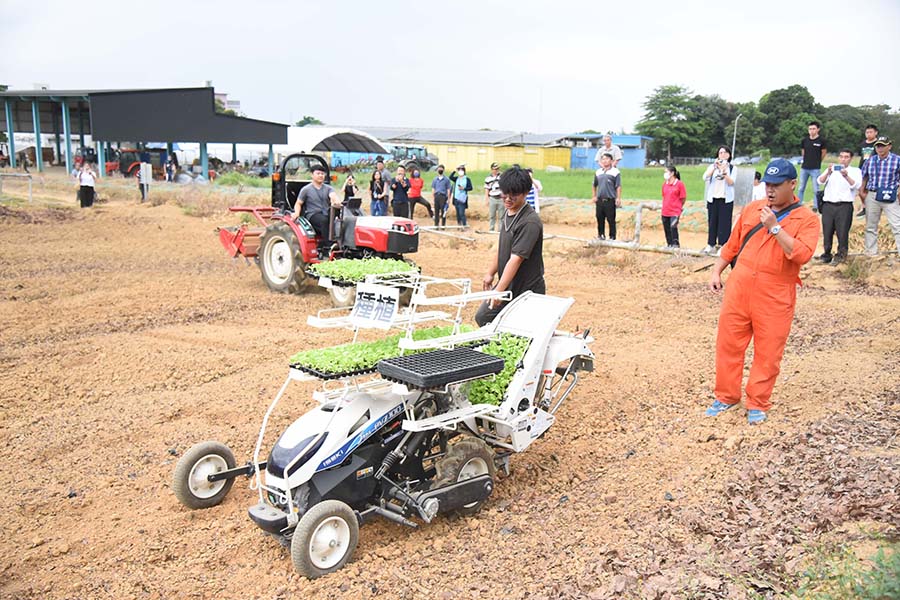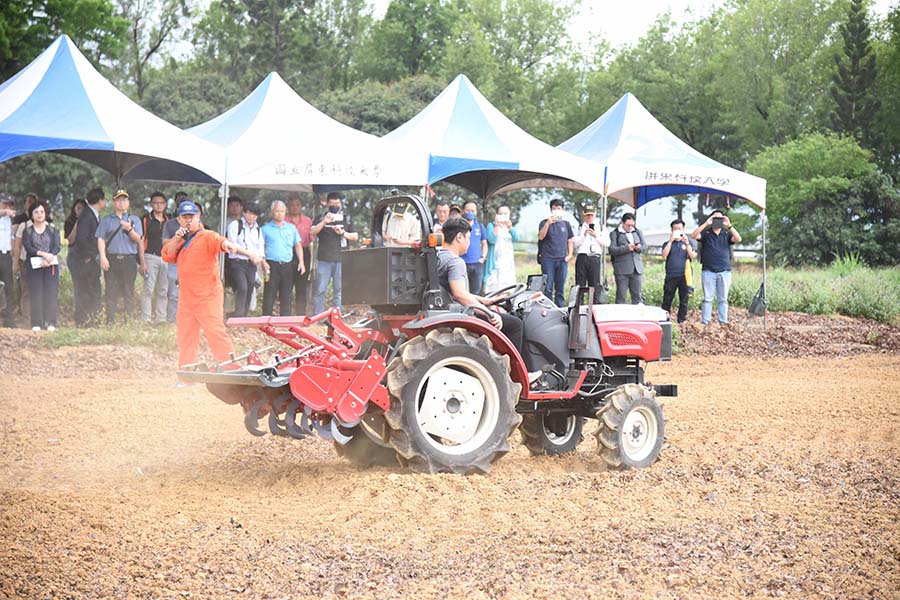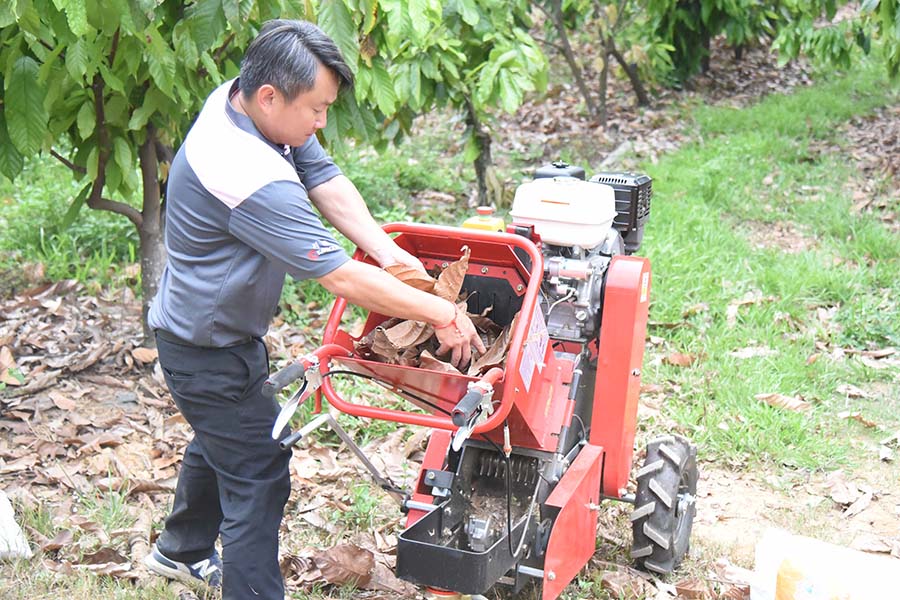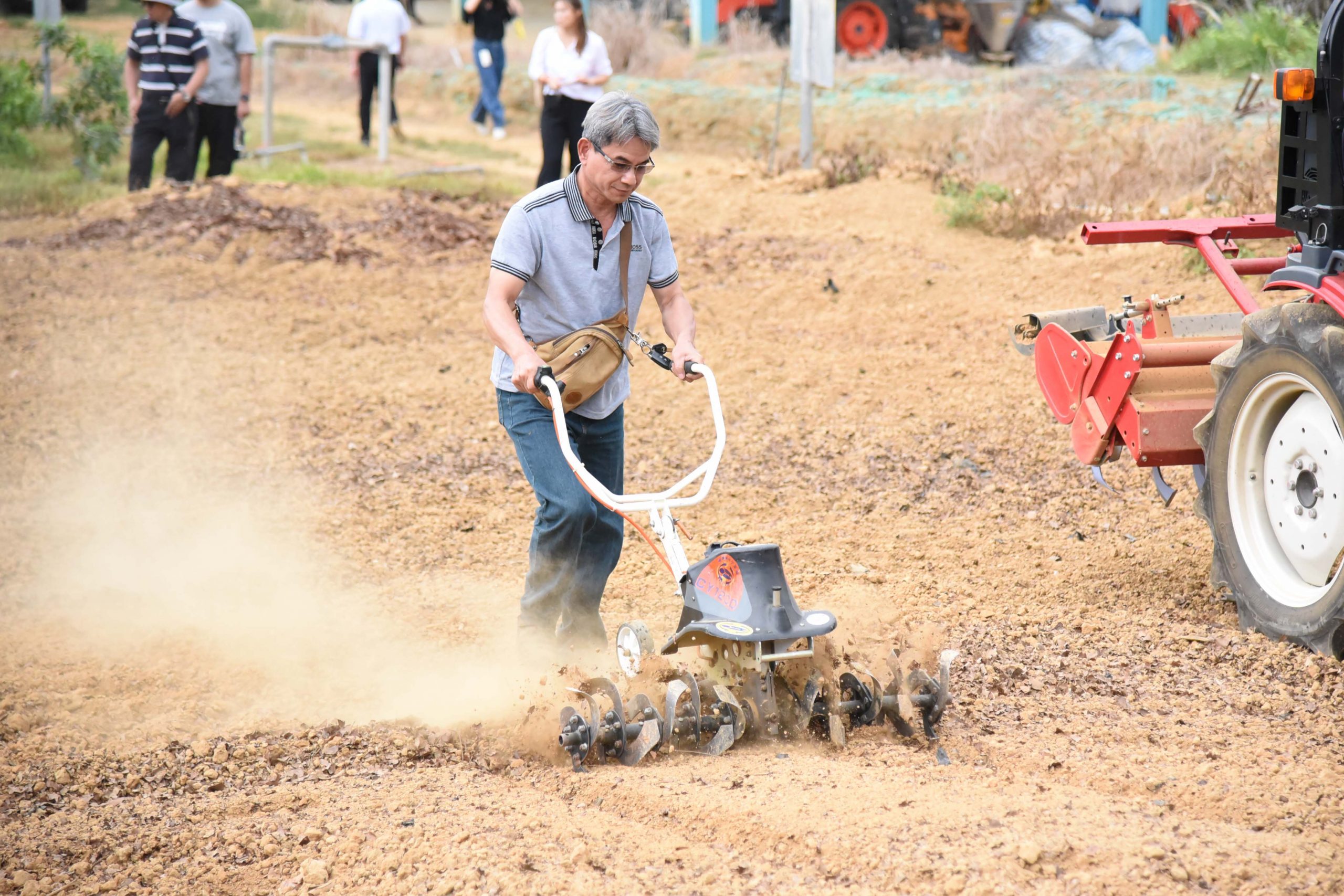As part of the government’s net-zero carbon emission policy, the Ministry of Agriculture is promoting four major areas of focus, including “reduction”, ” carbon sinks”, “recycling” and “green trends”. They also hope to see the active development of electric agricultural machinery which can replace the traditional combustion engines and help achieve carbon reduction goals. As part of this initiative, the Ministry of Agriculture Department of Agricultural Science and Technology invited industrial technology research institutes, battery motor & electronic control manufacturers and agricultural machinery manufacturers to attend a machine and tool exhibition at the NPUST Center for Smart Agriculture on April 24th, 2024.
A number of high-level representatives of academia, industry and government were present for the occasion, including NPUST President Chin-Lung Chang, Ministry of Agriculture Department of Agricultural Science and Technology Director Hung-hsi Lee, ITRI Central Branch Deputy-Executive Director Shih-Chi Lee, Agricultural Machinery Manufacturers Association Chairman Jui-Feng Lin, Agricultural Machinery Alliance Executive Director Wei-Chih Lin, NPUST Department of Biomechatronics Engineering Assistant Professor Wei Cheng Chen, and Chung Hsing University Department of Bio-industrial Mechatronics Engineering Associate Professor Yao-Chuan Tsai.
The gathering was an opportunity to conduct industry-government-academic research exchange and discuss ways to develop and promote electric agricultural machinery in the future.
NPUST President Chin-Lung Chang said: “our university, which was founded on agriculture, will celebrate its 100th anniversary this year. Over the years we have built many facilities to conduct practical research in agriculture, forestry, fishery, animal husbandry and other areas. We are actively investing in agriculture with hopes of making scientific breakthroughs for industrial applications. As technology becomes increasingly mature and effective, agricultural operations are gradually separating from the control of the natural environment. Through advanced automation, environmental monitoring, data collection and analysis, and the appropriate replacement of human labor with machines, management operations and labor have been streamlined and integrated to allow for high-efficient agricultural production systems—and by coordinating with relevant technical and international standards, we are able to achieve the goal of sustainable development in agricultural”.
Most traditional agricultural machinery uses gasoline and diesel as fuel, which is one of the main sources of carbon emissions in agricultural production. In response to net-zero carbon emissions, governments are encouraging farmers to use electric agricultural machinery to reduce carbon emissions. Other benefits of electric powered equipment include low noise, low vibration, low heat waste, and easy start-up.
In the past, the development of traditional agricultural machinery in Taiwan was behind the curve because the key manufacturing technologies, such as engines and gearboxes, were dominated by such countries as the United States and Japan. Currently Taiwan has excellent motor production and chip technology which give it an absolute advantage in developing local smart agricultural machinery for the future.
At the exhibition, the participants were introduced to a variety of equipment and briefed on industry needs. Proposals were also made on the type of electric powered equipment which could be developed in the future to cope with labor shortages and promote net zero goals.

